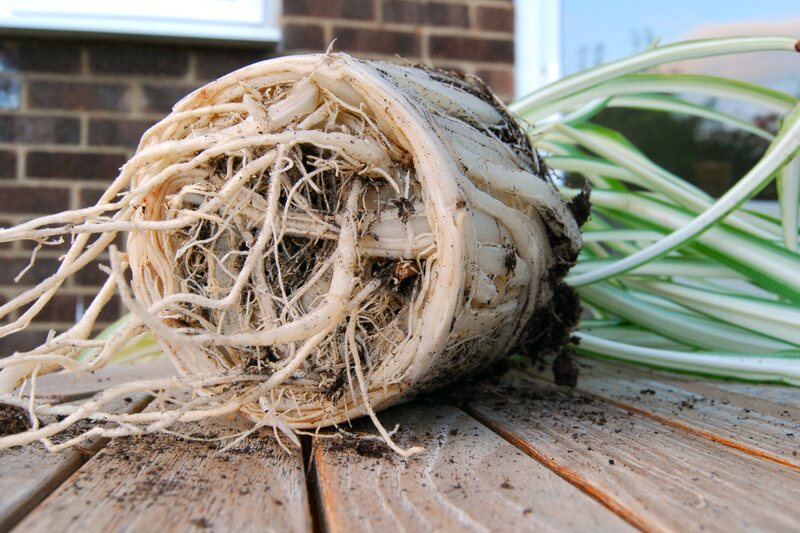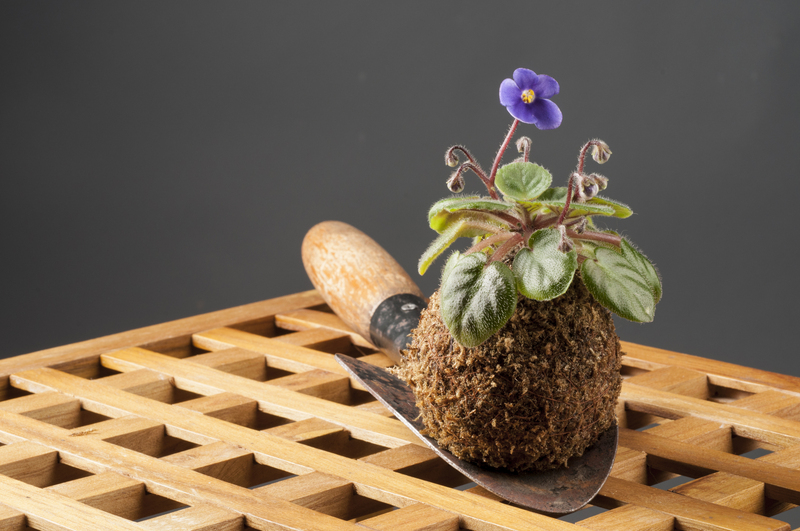From Trash to Treasure: Elevate Your Garden's Soil Quality
Posted on 28/05/2025
From Trash to Treasure: Elevate Your Garden's Soil Quality
Is your garden soil lackluster, refusing to yield the lush, green paradise you envision? You're not alone. Many gardeners struggle with poor soil that thwarts their best efforts. Fortunately, you may be sitting on a gold mine without realizing it. By transforming everyday organic waste--your so-called "trash"--into nutrient-rich compost, you can dramatically enhance your garden's soil quality while reducing your environmental footprint. In this comprehensive guide, we'll explore how to elevate your garden soil by recycling kitchen scraps, yard clippings, and other biodegradable materials, turning waste into a treasure for your plants.
Why is Garden Soil Quality So Important?
Gardeners often overlook soil quality, focusing instead on plant varieties and watering routines. However, soil health lays the foundation for every successful garden. High-quality soil:
- Supplies essential nutrients to plants
- Encourages robust root growth
- Enhances water retention and drainage
- Promotes beneficial microbial and earthworm activity
- Improves overall plant resilience and yield
Improving your garden's soil quality means fewer pests, richer harvests, and more beautiful blooms. Best of all, you don't need to buy expensive fertilizers--your home can provide everything you need to enrich your soil sustainably.

Understanding Soil Structure and Nutrient Balance
Before transforming trash into treasure, it's vital to grasp what contributes to good garden soil health. Ideal garden soil features a balanced mix of three soil particles:
- Sand: Provides drainage but poor in nutrients
- Silt: Offers nutrients and retains moisture
- Clay: Holds nutrients but can restrict drainage
Loam, the gardener's golden standard, is an even blend of these particles. It maintains structure, moisture, and aeration while being easy to work. Unfortunately, many gardens begin with heavy clay or sandy soils. That's where composting and organic amendments come in--transforming waste into the organic matter your soil desperately craves.
The Science of Composting: From Waste to Garden Gold
Composting is a natural biological process that breaks down organic materials into a nutrient-rich soil amendment. By combining your kitchen scraps and yard waste, you can create compost that dramatically improves soil fertility, structure, and water-holding capacity. Here's why composting is key to elevating your garden's soil quality:
- Enriches soil with essential nutrients
- Improves soil texture for better root growth
- Encourages beneficial organisms that fight disease and aerate soil
- Reduces landfill waste and your carbon footprint
Transforming trash into treasure is truly possible with composting.
How to Start Your Own Compost Pile or Bin
What You Can Compost
- Vegetable and fruit scraps
- Coffee grounds and tea bags
- Eggshells
- Grass clippings
- Dry leaves and small branches
- Shredded newspaper or cardboard (uncoated)
What to Avoid Composting
- Meat, bones, fish, and dairy products
- Oily or greasy foods
- Diseased plants or weeds with seeds
- Pet or human waste
- Non-biodegradable materials (plastic, glass, metals)
Tips for Building Your Compost Pile for Maximum Soil Quality Improvement
- Choose your composting spot: Select a dry, shady location near a water source.
- Start with coarse materials: Place sticks or straw at the base for air circulation.
- Layer greens and browns: Add green (nitrogen-rich) and brown (carbon-rich) materials in layers.
- Keep it moist: The pile should feel like a damp sponge--not wet or dry.
- Turn regularly: Aerate by mixing the pile every week or two, ensuring even decomposition.
- Monitor temperature: Compost heats up as it breaks down; when it cools after several weeks or months, it's ready to use.
By following these easy steps, you can rapidly transform household and yard waste into black, crumbly compost--an absolute treasure for your soil.
Additional Organic Amendments: More Ways to Turn Trash into Garden Treasure
While compost is king, it's not the only way to recycle organic waste to improve soil quality. Consider these additions to your soil regime:
- Leaf Mold: Pile up fallen leaves, moisten them, and let them decompose for 6-12 months. The result is a soft, spongy amendment that improves soil structure and water retention.
- Grass Clippings: Add fresh clippings directly as mulch or into your compost. Avoid clippings treated with chemical herbicides or pesticides.
- Wood Ash: Sprinkle small amounts into your compost or around plants to add potassium and raise pH in acidic soils. Use sparingly!
- Chopped Prunings and Branches: Shred or chip woody materials to use as mulch or in compost for long-term nutrient release.
- Coffee Grounds: Rich in nitrogen, spread directly around acid-loving plants or add to compost for a nutrient boost.
These organic waste products--all commonly trashed--can add structure and nutrients, further elevating the quality of your garden's soil.
Worms at Work: Elevate Your Soil Quality with Vermicomposting
Vermicomposting enlists red wiggler worms to convert food scraps into incredibly rich worm castings (worm poo!). This process is easy, requires little space, and yields a potent soil amendment full of plant-friendly microbes.
Setting Up a Worm Bin at Home
- Container: A plastic storage bin with holes drilled for drainage and venting
- Bedding: Shredded newspaper, coconut coir, or dead leaves moistened (not soggy)
- Worms: Red wigglers (Eisenia fetida) are best for composting
- Food: Small amounts of fruit and veggie scraps, coffee grounds, crushed eggshells; avoid onions, citrus, meat, and oily foods
Within months, your worms will transform trash into nutrient-packed castings--known as "black gold" for soil quality.
Mulching: Another Treasure from Waste
Applying organic mulch is a powerful way to use yard waste while improving soil quality. Mulches--like grass clippings, shredded leaves, or chipped branches--protect the soil, conserve moisture, regulate temperatures, and suppress weeds. As mulch breaks down, it:
- Feeds earthworms and soil microbes
- Slowly adds nutrients and organic matter to the soil
- Prevents soil compaction and erosion
- Helps maintain soil temperature for plant roots
Don't bag your lawn clippings or send autumn leaves to the landfill--turn them into mulch and give your soil a continual supply of organic treasure.
Troubleshooting Garden Soil: Fixing Common Soil Problems with Waste-Derived Solutions
Problem soils often discourage gardeners before they even begin. By using homemade compost and amendments, you can address common issues:
Heavy Clay Soil
- Add generous amounts of compost and leaf mold to break up clumps and improve aeration.
- Avoid working clay soil when wet; wait until it's slightly dry to prevent compaction.
Sandy Soil
- Boost water-holding capacity and fertility by mixing in plenty of compost, grass clippings, and worm castings.
- Mulch heavily to protect against drought.
Acidic or Alkaline Soil
- Use wood ash judiciously to raise pH (for acidic soil).
- Add pine needles or coffee grounds to gently lower pH (for alkaline soil).
- Always test your soil before amending.
Compacted Soil
- Loosen with a garden fork, mix in well-aged compost and coarse organic matter (like bark chips or shredded leaves).
- Encourage earthworm activity by maintaining constant moisture and organic inputs.
The Many Benefits of Transforming Trash into Garden Treasure
By committing to eco-friendly gardening and composting, you not only improve your garden soil--you also make a wider positive impact. The benefits include:
- Reducing landfill waste: Organic matter returns to the soil, not a dump.
- Cutting your garbage collection costs
- Eliminating the need for chemical fertilizers: Healthier, safer produce and flowers
- Building healthy ecosystems: A thriving microbe and earthworm population in your garden
- Ongoing improvement: The more compost and mulch you use, the better your soil becomes over time.
*Transforming trash into treasure is a powerful, satisfying way to nurture both your garden and the planet.*
Success Stories: Real-Life Gardeners Elevating Soil Quality from Trash
Urban Balcony Bounty
Jane, a city dweller with a tiny balcony, began vermicomposting kitchen scraps in a plastic tub. Within a year, her potted tomatoes and herbs thrived with lush growth--no store-bought fertilizers required.
Suburban Lawn to Edible Garden
After years of battling heavy clay, Marco used layered mulch and homemade compost to turn his front yard into a productive vegetable patch. His first harvest of carrots and lettuce tasted sweeter than anything from the grocery store.
Community Composting Champions
A local community garden set up a communal compost pile using neighbors' fall leaves, coffee grounds, and veggie scraps. The resulting soil amendment revitalized neglected beds, leading to the neighborhood's best tomato crop in years.

Developing a Soil-First Routine: Tips for Sustainable Garden Success
- Feed your soil regularly: Add compost, mulch, or amendments at least once per season.
- Test your soil: Every 2-3 years, check pH and nutrient levels for targeted improvements.
- Rotate crops and plant cover crops: Prevent nutrient depletion and break pest cycles.
- Observe and adapt: Watch how your plants respond and adjust your feeding routine as needed.
By making soil care a regular habit, you'll ensure your garden thrives year after year.
Conclusion: From Waste to Wealth--Your Garden's Soil Awaits
Elevating your garden's soil quality doesn't require deep pockets or fancy products--just a commitment to recycling organic waste and nourishing the ground beneath your feet. Composting, mulching, and using other natural amendments are time-tested ways to transform household and yard trash into a treasure trove of nutrients for your plants.
Start today by setting up a compost bin, mulching your beds, or simply turning those kitchen scraps into garden gold. With each season, you'll witness the remarkable power of healthy soil--and the immense satisfaction of turning trash into treasure.
Your garden, your planet, your treasure.

